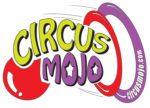The nationwide creepy-clown scare may have you clown-jaded, but Paul Miller will redeem his profession.
After Miller’s years of success as a Ringling Bros. Circus clown, the late 1990’s brought the entrepreneurial bug.
Miller’s idea: Take the art of circus and its benefits and apply it in novel ways. He knew when he taught a child to juggle or spin plates on a stick to uplifting result, he empowered them.
What if he could apply that empowering experience where it was most needed? Like with anarchist kids always in trouble at school, or at hospitals where sick children felt their disease sapping their sense of control.
And like the boom of a circus cannon–a social minded business was born.
Miller launched Circus Mojo in 2009 after honing his circus for self-esteem idea in other endeavors. Today Circus Mojo is nearing a quarter of a million dollars in revenue, even as industry stalwarts like Big Apple Circus have folded their tents. Miller is also starting a microbrewery, Bircus Beer, to sell beer at circus events and bars.
He’s running a three-ring circus: empowering, inspiring, and conquering.
Miller shared these lessons for entrepreneurs:
1. Look for funding in non-traditional places
Getting investors to wrap their minds around a circus for self-esteem business isn’t easy.
So Miller channeled his inner “clown-preneur”.
His Bircus Beer startup is the first brewery in the United States to be approved under Regulation A+ for funding. The regulation allows the middle class everyman to invest in startups for a small piece of equity in exchange.
Miller, whose business in based in Ludlow, Kentucky, also successfully applied for funding at the Northern Kentucky Area Development District. One of the requirements for funding was that Miller present rejections from three other banks. “That wasn’t a problem,” Miller assured me.
Miller’s ingenuity led him to the Small Business Development Center at Northern Kentucky University where he discovered that because he apprenticed so many circus workers from around the world, he qualified as an export business. Thus, he qualified for state export funding.
Creativity can pay dividends, literally, when trolling for funding.
2. The deals are out there
Miller advises patience and a scrappy attitude when it comes to getting your business the resources it needs on the cheap. Case in point: Miller bought $200,000 worth of brewing equipment from a bankruptcy proceeding (getting the equipment for 25 cents on the dollar).
He waited to buy the facility for his Circus Mojo business, an old theater, at 50 percent of its value in 2009 right after the real estate crash. He even invited local firemen to practice their trade by knocking down walls at the old theater as part of a rehab. Everybody wins.
You can win too with pluck and perseverance in your deal hunting.
3. Ask for help
Miller, a theater major, not an MBA, knew he needed help to craft his business model.
So he asked for it.
Says Miller, “I submitted my business model to every competition I could find. I learned so much from each one and it has helped me hone my business model.”
That same spirit led him to enroll a clinical psychologist to help him quantify the benefits of circus and to build legitimacy of circus as a medical treatment. It also led him to lean on mentors to help keep him accountable and to embrace failures.
Remember you don’t have to go this alone. And you’d be surprised how many people will say “yes” to a request for help.
4. Stick to your business model
Plenty have told Miller what he should and shouldn’t do. He’s had plenty of doubters. He’s had people tell him he shouldn’t mix beer in with circus and children. He’s had investors tell him he needs to expand his beer distribution into a kajillion stores.
But that’s not Miller’s model. Bars that carry his beer will get circus events right in their bar. He’s using beer to extend the Circus Mojo brand, not the other way around.
There will be plenty of naysayers and armchair quarterbacks. Stick to your guns if you believe in what you’re trying to do.
5. Dream big
Miller wants to franchise Circus Mojo someday, enabling thousands of out of work circus performers to start their own self-esteem through circus business. He’s quick to remind me, “Cirques du Soleil was once a startup, and sold for $1.5 billion dollars.”
Go big or go home.
6. Ensure your startup starts up with purpose
Miller keeps going back to why he’s in the circus business, empowerment. This passion point keeps him going through all the ups and downs.
What’s the purpose or higher order reason for your business? If you don’t have one, find one. You don’t have to fill the big clown shoes that Miller leaves behind in terms of nobility – just make sure it’s a purpose that’s meaningful to you.
And as for Miller’s take on the clown scare?
“Clowns have been around for a long time,” he says. “We aren’t going anywhere.”
Thank goodness, Paul. Thank goodness.

